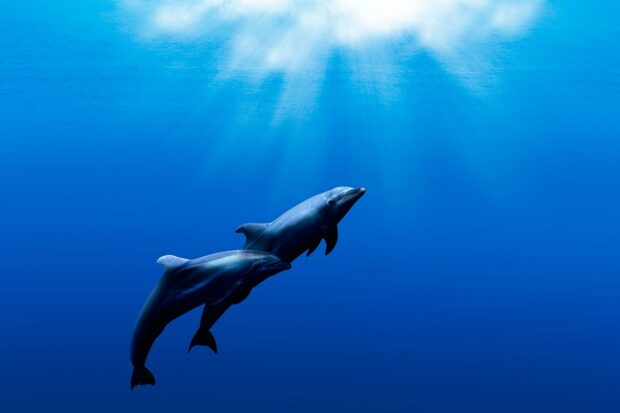 Today (16 November 2021), the UK Government has published a joint position statement which sets out preference for low noise alternatives to clear unexploded ordnance and re-affirms its commitment to considering new ways to achieve this in order to protect marine life and prevent damage to the seabed.
Today (16 November 2021), the UK Government has published a joint position statement which sets out preference for low noise alternatives to clear unexploded ordnance and re-affirms its commitment to considering new ways to achieve this in order to protect marine life and prevent damage to the seabed.
Clearance of unexploded ordnance is undertaken by high order detonation leading to loud blasts which has the potential to disturb and injure marine mammals. It is estimated that there are between 300,000 and 500,000 pieces of unexploded ordnance left over from World War I and II in UK waters.
It is essential that these munitions are removed in a controlled way to allow for safe working conditions for marine industries, such as offshore wind development.
The joint position statement formally recognises the importance of exploring alternative low noise technologies and outlines government preference for the inclusion of these methods in applications from marine developers.
To provide clarity for industry, the statement lists current recommendations for applications until more robust data is available and pilots can take place to test possible alternatives.
A Defra spokesperson said:
The Government, alongside the Marine Management Organisation, Joint Nature Conservation Committee, Natural England, OPRED and DAERA have all endorsed this statement. The Government is committed to protecting the marine environment and ensuring that we are able to deliver healthy, resilient and diverse marine ecosystems.
With an improved evidence base, and with continuing support and advice from the Statutory Nature Conservation Bodies, the Marine Management Organisation (as the regulatory authority) will be able to make better informed licensing decisions around the use of such techniques in English waters.
3 comments
Comment by Christina Aitken posted on
All good news, we need to look after our animals and wildlife, they were on this planet first and they look after it better than we do too. Always good to see and read good news.
Comment by William Hughes-Games posted on
Protecting the sea bed is of vital importance for the ecology of the oceans but may be misguided when mining for iron sands or Manganese nodules. Unlike bottom trawling, which goes over the same area again and again and never lets the sea bed ecology recover, these types of mining are a once off and in the case of nodules, will not be possible to do again in the same area for thousands of years. Iron sands will never be possible again in a mined area. In addition, a certain, limited amount of disruption of any ecosystem, gives pioneer species room to develop. If not too extensive in any one area, it increases the diversity of an ecosystem. As is often the case, the devil is in the detail.
Comment by Dr Sara Lanier posted on
Does this mean that the UK government is planning to finally clean up the world war two toxic dump of biological weapons and unused explosives lining Beaufort’s Dyke in the Irish sea between Larne and Cairnryan ? No ? I didn’t think so. Just another ecocidal landmine legacy for our descendants to deal with or die from.